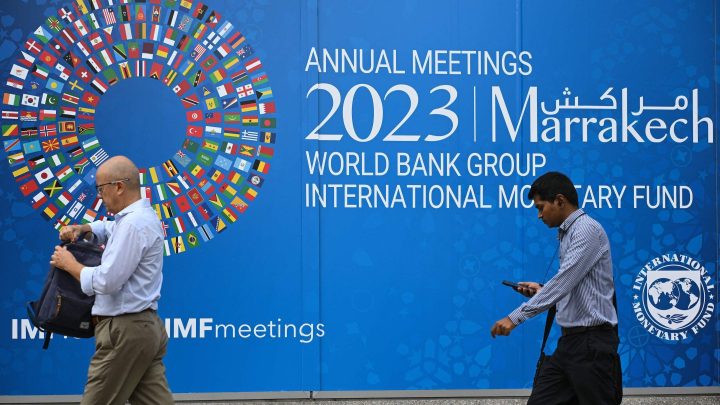
World Bank: Record debt hurting developing countries

The U.S. may be looking at interest rate cuts in the coming year, but high interest rates around the world have saddled developing countries with record levels of sovereign debt.
The World Bank’s latest report on international debt found that low- and middle-income nations spent $443.5 billion paying off principal and interest in 2022. That’s a 5% increase over the prior year and the highest number on record.
A few years ago, developing countries were already dealing with unsustainable debt levels, said Christine McDaniel with the Mercatus Center at George Mason University.
“And then new geopolitical crises popped up,” she said, like public health lockdowns and later the war in Ukraine. “And then interest rates went up.”
Developing nations have also been paying a higher price for climate change. McDaniel said it all just snowballed.
In the last three years, countries defaulted on their debt 18 times, according to the World Bank. That includes Zambia, Lebanon and Sri Lanka.
Anna Gelpern, with the Georgetown University Law Center and the Peterson Institute for International Economics, said high levels of sovereign debt aren’t always a bad thing.
“Look, debt is a means to an end,” she said.
When that end is better health care, education and infrastructure, then, Gelpern said, debt helps economies develop.
But lately, many of the world’s poorest countries have been borrowing just to stay solvent.
“When debt becomes a means to debt repayment rather than a means to economic growth and human flourishing, that’s when you see the problem,” she said.
Lots of debt also makes it hard to attract new financing, and we are in a time when underinvestment in developing nations has dire consequences, said Nancy Lee of the Center for Global Development.
“And they really aren’t able to pay the additional cost needed for climate resilience and climate adaptation,” she said.
The World Bank is calling on financial institutions and creditor nations like China to restructure and relieve the debts of struggling countries. That would help the developing world avoid what the funding organization calls a lost decade of growth.
There’s a lot happening in the world. Through it all, Marketplace is here for you.
You rely on Marketplace to break down the world’s events and tell you how it affects you in a fact-based, approachable way. We rely on your financial support to keep making that possible.
Your donation today powers the independent journalism that you rely on. For just $5/month, you can help sustain Marketplace so we can keep reporting on the things that matter to you.











